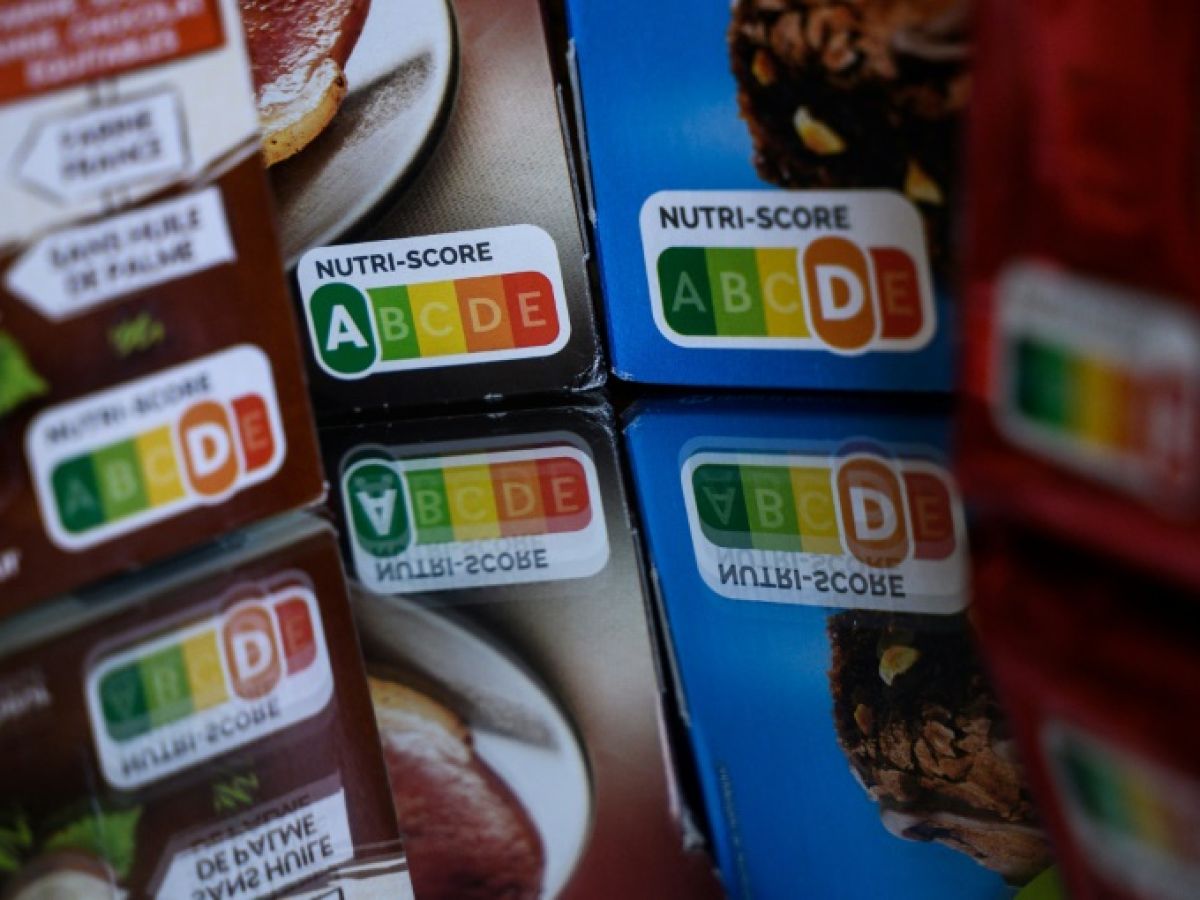The consumer association Foodwatch and one of the developers of Nutri-Score expressed their concerns on Friday about the implementation of a new version of this nutritional information display, following critical statements by Agriculture Minister Annie Genevard.
This labeling system, which classifies food products from A to E based on their composition and nutritional content, was designed by nutrition specialists and implemented in France in 2017 on a voluntary basis. It has become quite prominent on supermarket shelves, and a handful of European countries have adopted it in turn.
In a qualitative study conducted by Santé publique France and Kantar Public among 71 people and published in November 2024, respondents considered the indicator "easy and quick to use" and was particularly useful for "processed products" such as ready meals, because consumers felt "unable to assess the quality themselves".
A new method of calculation, more stringent with products processed by the food industry to take into account more recent scientific work, requires a government decree to come into force in France.
It had been endorsed by previous government teams, but the current Minister of Agriculture, Annie Genevard, took responsibility for blocking the publication of this ruling this week. Questioned in the Senate, she stated: "The decree is pending my signature. I haven't signed it yet. I don't know what room for maneuver I have to correct its negative effects, but believe me, I'm taking a very close interest in it."
– “Magnificent French cured meats” –
The elected representative from Doubs, the stronghold of Comté cheese and sausages from Montbéliard and Morteau, criticizes the indicator for giving a poor rating to "remarkable" local products or those from "magnificent French cured meats," particularly cheese and charcuterie.
However, "the Nutri-Score does not say that products should not be consumed, it reminds us that certain products which are very fatty, very sweet, very salty, should be consumed in small quantities, not too frequently," explained to AFP Serge Hercberg, professor of nutrition and designer of this labeling widely acclaimed by specialists.
This is "in perfect phase with the public health nutritional recommendations" in force, he indicated in a reaction sent to AFP on Friday.
"Banning advertising for sweet, savory, and fatty products (PGSS), nutritional labeling, and taxing sugary drinks are the most effective public policies against overweight and obesity," according to a study by the Directorate for Research, Studies, Evaluation, and Statistics (Drees) from July 2024.
The consumer protection association Foodwatch, for its part, deemed the minister's statement "irresponsible," as she "is acting as the voice of the dairy lobby's arguments and blocking a public health measure that has been expected and ready for a year," according to Audrey Morice, a campaign manager at Foodwatch.
– Cost of chronic diseases –
The association, along with the federation of patient associations France Assos Santé and the Climate Action Network, sent an open letter to Prime Minister François Bayrou on Friday.
"It is no longer possible to place the responsibility for chronic diseases linked to poor diets solely on the shoulders of consumers, even though they do not have access to clear and neutral information on what they buy and consume," they write.
"Nutrition-related diseases," such as obesity (which has quadrupled since 1997 among 18-24 year-olds to reach 9.2% in 2020), cancer, cardiovascular diseases, diabetes and hypertension have "a human cost and also an extremely significant social and economic cost," deplores Mr. Hercberg.
Questioned on Friday, the French Ministry of Health indicated that Catherine Vautrin had "already expressed her position", in particular that she was "extremely vigilant about Nutri-Scores" and that it was necessary "to go further on the subject".
The European Commission, which decides on mandatory consumer information, recently reiterated that it would "continue to work" on a consensual solution for nutritional labeling that is not Nutri-Score, which is opposed by major manufacturers, certain agricultural sectors, and the Italian government.
cda-ref-max-sb-ec-raz/ak/ktr


